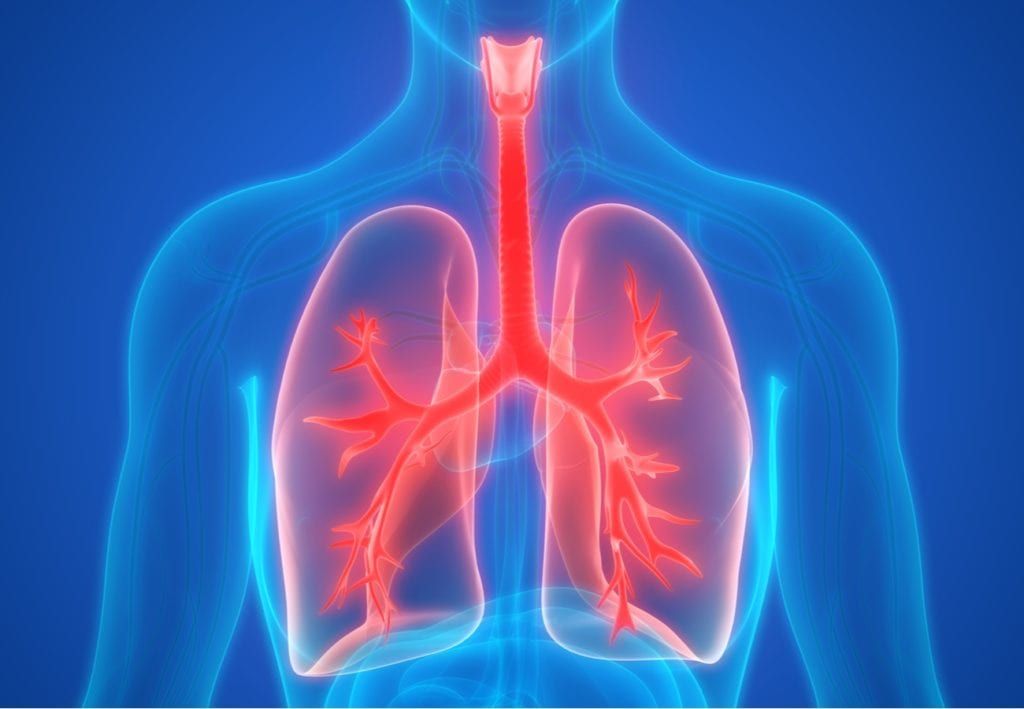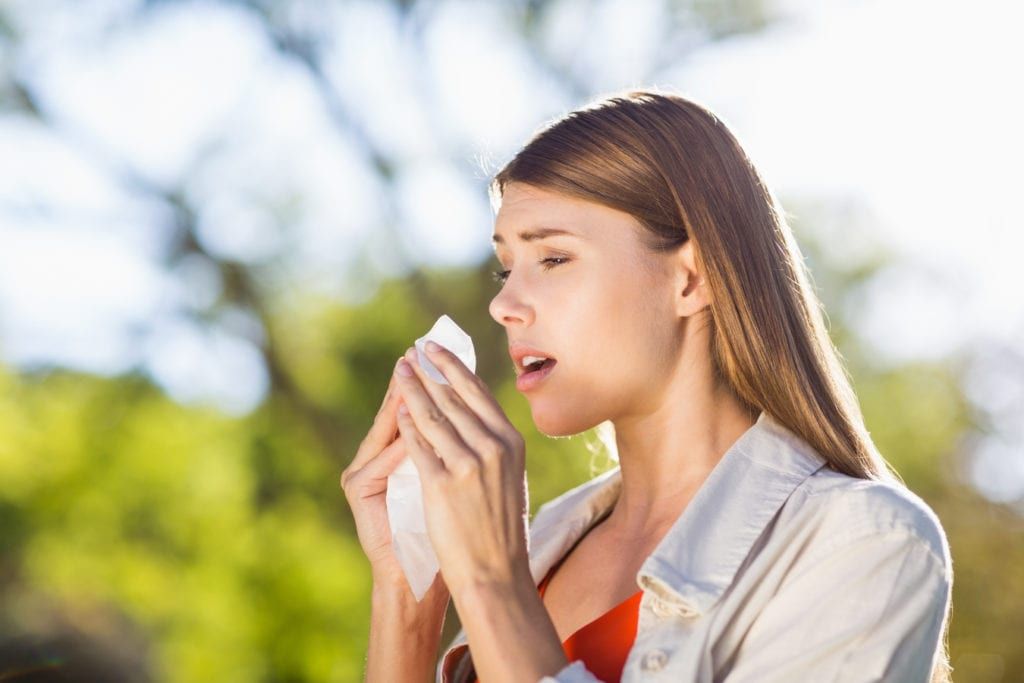
Allergen immunotherapy, commonly referred to as “allergy shots,” has been around for over 120 years and continues to be the #1 treatment option for patients suffering from chronic allergies. Since allergen immunotherapy works by promoting the body’s natural immune system, it is one of the few treatment options to actually address the underlying cause of allergies rather than just the symptoms alone. When formulated and administered by an allergy specialist, allergen immunotherapy has been proven to have unmatched results that are both highly effective and safe.
To learn more about allergen immunotherapy or to see if allergen immunotherapy is the right option for you, schedule an appointment to speak with our Board-Certified Allergist.
To be added:
To be added:
To be added:

Environmental allergies are estimated to affect up to 40% of the general population, according to the World Health Organization. At Allergy, Asthma & Sinus Associates we have managed thousands of patients with environmental allergies. With over a decade of experience, we continue to set health industry standards when it comes to successfully diagnosing and managing both pediatric and adult environmental allergies.
An environmental allergy is the result of the body’s exaggerated immune response to various substances found in the environment. Common substances include dust mites, grasses, trees, weeds, and pet dander. This exaggerated immune response results in inflammation of the nasal and/or sinus membranes that presents as nasal congestion, sneezing, itchy nose/mouth/throat/eyes, cough, and sinus pressure.
At Allergy, Asthma & Sinus Associates we are equipped to perform allergen skin testing in-house. Our highly trained staff will perform the needed tests and your results will be interpreted by a board-certified allergist who will discuss the finds and work with you in creating a treatment plan. Our mission is to provide effective an effective solution so that you can go back to living the live you love.
While there is no cure for environmental allergies, the symptoms can certainly be managed. While some patients benefit from prescription medication taken as needed for symptom relief, many patients prefer to be placed on allergen immunotherapy (allergy shots). At Allergy, Asthma & Sinus Associates we feel no two patients are alike and for that reason each patient’s treatment is tailored to their individual needs.

Food allergies are estimated to affect 4% of adults and 4%-6% of children, according to the Centers for Disease Control and Prevention. At Allergy, Asthma & Sinus Associates we have managed thousands of patients with food allergies. With over a decade of experience, we continue to set health industry standards when it comes to successfully diagnosing and managing both pediatric and adult food allergies.
A food allergy is the result of the body’s exaggerated immune response to a food or a substance in a food. While several studies have soon a genetic link to food allergies, proving it to be inheritable, it is impossible to accurately predict whether a child will inherit a parent’s food allergy or whether siblings will have similar conditions. The severity of food allergies can vary from mild to severe and may even lead to anaphylaxis is some cases. While any food may cause an adverse reaction, eggs, milk, peanuts, tree nuts, wheat, soy, fish, and/or shellfish cause approximately 90% of all reactions.
What is Oral Food Allergy Syndrome?
Patients who have an allergy to pollen, specifically to trees and weeds, may experience mouth and throat itching when consuming certain fruits and/or vegetables. This is due to cross reactivity between certain trees/weeds and fruits/vegetables. A person who experiences oral food allergy syndrome be believe they have a food allergy when in fact they are experiencing an allergy to pollen.
Food allergies can involve the skin, gastrointestinal tract, cardiovascular system, and the respiratory tract. Some common symptoms are:
Most food allergy symptoms develop within 2 hours of ingestion; often symptoms start within minutes. In some cases the reaction may be delayed and symptoms may not present until 6 hours or more after ingestion.
At Allergy, Asthma & Sinus Associates we are equipped to diagnose both pediatric and adult food allergies in-house. After carefully reviewing your medical history and discussing any individual concerns, our highly trained staff will perform skin prick testing to assess for the presence and severity of food allergies. In some cases, patients may also receive blood tests (such as ImmunoCap) to further assess for food allergies by measuring the amount of IgE antibody to the specific food(s) being tested.
The management of food allergies centers on avoiding consumption of foods that are known to cause reactions. While allergies to egg, milk, wheat and soy may disappear over time, allergies to peanuts, tree nuts, fish and shellfish tend to be lifelong. Once a patient has been diagnosed with a food allergy, we prescribe them an EpiPen and strongly encourage that they always keep the EpiPen close at hand.
The Food Allergy Labeling and Consumer Protection Act of 2004 (FALCPA) mandates that manufactures of packaged foods being produced in the United States identify, in a simple to understand, clear language, the presence of any of the eight most common food allergens (egg, milk, wheat, soy, peanut, tree nut, fish and shellfish). We strongly encourage patients who have known food allergies to be familiarized with these labels and routinely check them prior to consuming foods.

Developing a reaction after being stung by an insect is common for most individuals and is often results in localized inflammation and/or irritation. However, it is estimated that up to 13.5 million people in the United States may be at risk of developing a life threatening allergic reaction (anaphylaxis). At Allergy, Asthma & Sinus Associates we have diagnosed and manage hundreds of patients affected by insect sting allergies.
There are three types of reactions to insect stings:
1) Local Reaction
A local reaction includes swelling and redness that is confined to the general area of the sting. Local reactions are generally not dangerous.
2) Large Local Reaction
A large local reaction may result in swelling, redness and itching that may or may not be confined to the general area of the sting. Large local reactions are generally not dangerous however anyone who experiences such a reaction should be further evaluated.
3) Systemic Reaction
A systemic reaction is an allergic reaction that results in symptoms beyond localized swelling and may include itching, hives or swelling away from the area of the sting. Systemic reactions have a risk of progressing to anaphylaxis, a life threatening allergic reaction that can include difficulty breathing, chest tightness, throat closure, dizziness, a drop in blood pressure or cardiac arrest.
While most individuals will experience a mild to moderate reaction after being stung by an insect, those with insect sting allergies are at risk of developing severe reactions that may become life threatening. Anyone who has experienced an allergic reaction in the past to an insect sting has a significantly increased chance of developing a similar or worse reaction if stung again.
Top 5 Stinging Insects That May Produce Serious Reactions:
At Allergy, Asthma & Sinus Associates we are equipped to test for most all insect sting allergies. Our Board Certified Allergist will review your medical history and discuss all your concerns. Your allergist will determine which method of testing would be the most effective and safe for your individual case. Testing may include skin prick testing and/or blood testing.
Click here to learn more about skin prick testing
Click here to learn more about blood testing
Treatment for insect sting allergies centers on allergen avoidance. Patients who are known to have a severe allergy to insect stings are strongly encouraged to keep an EpiPen close at hand. At Allergy, Asthma & Sinus Associates we have seen a high success rate with placing patients on Venom Immunotherapy. Patients who have known allergies to bees or fire ants have noted a dramatic reduction in symptoms following subsequent insect stings.
Click here to learn more about immunotherapy.
Anyone who experiences insect sting allergies is encouraged to take the following precautions:

Sinusitis, an infection of the sinuses, afflicts 31 million individuals in the United States. Each year, Americans spend more than $1 billion on over-the-counter medications to manage the symptoms of sinusitis and over $150 million on prescription medication to treat sinusitis. Individuals who have allergies, asthma, immune deficiencies, or structural abnormities of the nose or sinuses are placed a much greater risk of developing sinusitis. At Allergy, Asthma & Sinus Associates we have treated thousands of patients who suffer from sinusitis.
Sinusitis is an infection of the sinuses, which is the hollow cavities within the cheekbones, around the eyes and behind the nose. It is typically caused by a bacterial infection that may develop following a respiratory infection. When mucus gets blocked from draining properly out these cavities it becomes a site for bacterial growth. Individuals with allergic rhinitis or asthma are more likely to suffer from sinusitis because the chronic inflammation experienced in these conditions often times obstructs the flow of mucus. Similarly, individuals with structural abnormalities, such as a deviated nasal septum, are more susceptible to sinus infections as well.
Acute Sinusitis
Acute sinusitis refers to a sinus infection that last less than 4 weeks.
Chronic Sinusitis
A sinus infection that lasts for more than eight weeks despite medical treatment is termed “chronic sinusitis.”
The symptoms of a sinus infection may include:
Testing for sinusitis begins with the patient’s medical history and a detailed physical examination of the nose, mouth, throat, and lungs. Our Board Certified Allergist will check for polyps or any changes in the anatomy of the nose. Based on a patients medical history, presenting symptoms, and physical examination, additional tests me be considered. These tests include:
When the underlying cause of sinusitis is treated effectively, the frequency of infections can decrease significantly.
Treatment plans are personalized for each patient depending on their presentation and symptom severity. Most treatment plans include:
Since allergies are a frequent exacerbating factor of sinusitis, patients who have environmental allergies may benefit from allergen immunotherapy (allergy shots).

At Asthma, Allergy & Sinus Associates we have treated thousands of patients who experience lung conditions. We offer patients in-house lung function testing and allergy testing that provides results within minutes. This allows us to provide our patients with rapid relief so they can go back to enjoying life.
Asthma is a chronic lung condition that causes inflammation and narrowing of the airways, which results in difficulty breathing. Asthma generally develops in childhood and may sometimes resolve with age, however many individuals continue to experience asthma or asthma related symptoms into adulthood. Additionally, there are cases of adult onset asthma where an individual is not diagnosed with asthma until after the age of 18. Asthma is known to have a strong genetic component, which means that if you have asthma, there is a chance that others in your family may have asthma as well.
Cough is a common symptom experienced by mostly everybody at some point or another. While a minor cough is typically caused by a bacterial or vial infection, a persistent cough may be a sign of something more serious, such as asthma. At Allergy, Asthma & Sinus Associates our highly trained has helped thousands of patients uncover the root cause of their cough as well as provide symptom relief and treatment.

Asthma is one of the leading caused of work and school absenteeism. It is estimated that 26 million individuals suffer from asthma in the United States. At Allergy, Asthma & Sinus Associates we provide specialized asthma care for children and adults. By assisting patients to identify triggers and devising personalized treatment plans, we have helped thousands of patients live happy, healthy, active lives.
Asthma is a chronic lung condition that causes inflammation and narrowing of the airways, which results in difficulty breathing. Asthma generally develops in childhood and may sometimes resolve with age, however many individuals continue to experience asthma or asthma related symptoms into adulthood. Additionally, there are cases of adult onset asthma where an individual is not diagnosed with asthma until after the age of 18. Asthma is known to have a strong genetic component, which means that if you have asthma, there is a chance that others in your family may have asthma as well.
There are various subtypes of asthma however the underlying issue is the same, lung inflammation leading to narrowing of the airways. Some common subtypes of asthma include:
Allergic Asthma
Allergic Asthma is triggered by allergic reactions to allergens such as dust mites, mold, pollen, or pet dander.
Occupational Asthma
Occupational asthma is triggered irritants such as chemical fumes, dust, or gases that are encountered often times in industrial/workplace environments. Individuals who experience occupational asthma often realize that their symptoms seem to worsen on days they are working and disappear on days they are absent from work.
Exercise-Induced Asthma
Exercise-induced asthma is when asthma symptoms are triggered only during times of physical stress, such as exercising or physical activity.
Nocturnal Asthma
Nocturnal asthma is when asthma symptoms are experienced are either increased or only experienced during the nighttime. Anyone with asthma may experience nocturnal asthma.
Eosinophilic Asthma
Eosinophilic asthma is when asthma symptoms are present with high levels of white blood cells called eosinophils. Individuals with eosinophilic asthma tend to experience severe asthma symptoms. This subset of asthma affects adults more often than children.
Asthma symptoms can occur infrequently, daily, weekly, or monthly. The severity of asthma symptoms can range from mild to severe persistent. Common symptoms of asthma include:
Several factors are assessed when evaluating a patient for asthma, including medical history, physical examination, onset of symptoms, duration of symptoms, timing of symptoms, and persistence of symptoms. At Allergy, Asthma & Sinus Associates a Board Certified physician evaluates each patient and orders further testing as needed on a case-by-case basis. Tests for asthma include:
Since up to 80% of childhood asthma patients and 70% of adult asthma patients suffer from allergies, allergy control becomes the single greatest factor to target for most patients. Through obtaining control of their allergies, most patients experience significant control over their asthma. At Allergy, Asthma & Sinus Associates we have helped thousands of asthmatics identify and eliminate allergens that have exacerbated their asthma for years.
Click here to learn more about Allergy Skin Testing
Along with allergen control, asthmatics may benefit from several medications currently available:
Rescue Medicines
Rescue medicines provide relief for sudden asthma symptoms. These medications start to alleviate asthma symptoms within a few minutes by relaxing airway muscles and allowing flow though the airways. These medications are available in the form of an inhaler or aerosolized with a nebulizer.
Common rescue medications include:
Children who use a rescue inhaler may benefit from a device called a spacer. This device helps children properly inhale the medication into the lungs.
Controller medicines
Controller medicines provide for long-term control of asthma and to prevent future symptoms. The decision to use controller medicines depends of the frequency of severity of asthma symptoms. All controller medicines work by reducing the inflammation in the airways, which allows for the proper flow of air.
Common Controller medications include:
Biologic Medicines
Most patients experience mild to moderate asthma that can be successfully managed on a combination of rescue and controller medicines. However 5-10 percent of asthmatics fail to obtain proper asthma control through these methods. For these individuals a relatively new group of prescription medications, called biologics, have become available. These medications work by targeting specific pathways that link inflammation to asthma.
Biologic treatment is currently an option for:

Allergic rhinitis, also commonly referred to as hay fever or allergies, is the result of the body’s exaggerated immune response to environmental allergens. This exaggerated immune response results in inflammation of the nasal and/or sinus membranes, which presents as nasal congestion, sneezing, itchy nose/mouth/throat/eyes, cough, and sinus pressure.
Approximately 33 percent of people with rhinitis symptoms do no have allergies. Non-allergic rhinitis, also known as “reactive nose” or “sensitive nose,” primarily affects adults and presents with year-round symptoms such as runny nose and nasal congestion. Unlike allergic rhinitis, non-allergic rhinitis does not involve the body’s immune system.
Nasal congestion can be the result of a variety of conditions, ranging from the common cold to structural abnormalities. When the body’s immune system is involved, the nasal congestion is considered to be allergy-related. At Allergy, Asthma & Sinus Associates we can help determine the cause of your nasal congestion and devise a treatment plan either in-house or through collaboration with an ENT specialist.

Over 3 million individuals in the United States suffer from drug allergies. If you develop a rash, hives or difficulty breathing after taking certain medications, you may have a drug allergy. At Allergy, Asthma & Sinus Associates we are able to test for drug allergies and help patients avoid further discomforting or possibly life threatening reactions.
As with other allergic reactions, drug allergy symptoms can occur when the body’s immune system becomes sensitized to a substance with in a medication and perceives it as a foreign invader. This results in the release of chemicals such as histamine, which leads to symptoms such as hives, rashes or difficulty breathing.
There are two broad categories of adverse drug reactions:
1) True Allergic Reaction
2) Non-Allergic Reactions
Drug allergies are capable of producing an allergic reaction throughout the body. Symptoms of drug allergies may include:
Skin Testing
Skin Testing is currently used to evaluate for a drug allergy to penicillin. Since penicillin is a commonly encountered drug allergy, skin testing has proven to be a reliable method in identifying mild to severe penicillin allergies.
Click here to learn more about skin testing.
Drug Challenge
A drug challenge has been shown to be an effective method in identifying drug allergies for patients who have high suspicion for certain medications. During a drug challenge, a small amount of the drug is administered to the patient in gradual doses while under close observation.
Blood Testing
For certain medication, blood testing is available to check of Ig-E levels. A Board Certified Allergist can use the results of blood testing, combined with a patient’s medical history, to assist in making a diagnosis.
Management of drug allergies centers on avoidance of the offending drugs.

There are over 3 million cases of allergic rhinitis (also known as hay fever) per year. At Allergy, Asthma & Sinus Associates we have seen the entire spectrum of allergic rhinitis ranging from mild to severe treatment resistant cases. With over a decade of experience, we continue to set health industry standards when it comes to successfully diagnosing and treating both pediatric and adult allergic rhinitis.
Allergic rhinitis, also commonly referred to as hay fever or allergies, is the result of the body’s exaggerated immune response to environmental allergens. This exaggerated immune response results in inflammation of the nasal and/or sinus membranes which presents as nasal congestion, sneezing, itchy nose/mouth/throat/eyes, cough, and sinus pressure.
Subsets of Allergic Rhinitis:
Seasonal Allergic Rhinitis
Typically caused by airborne pollen from grasses, trees, weeds or from molds. Seasonal allergic rhinitis varies by seasons and can occur in summer, spring, or fall.
Perennial Allergic Rhinitis
Typically caused by dust mites, mold, pet dander or hair. Perennial allergic rhinitis symptoms are generally year-round.
Allergic Conjunctivitis
While allergic conjunctivitis is not a subset of allergic rhinitis, it commonly presents alongside it. Allergic conjunctivitis presents as swelling and itching of the eye(s). Similar to allergic rhinitis, allergic conjunctivitis is caused by the body’s exaggerated immune response to environmental allergens.
Most Common Symptoms of Allergic Rhinitis
Associated conditions:
Patients who present with allergic rhinitis often times also experience:
At Allergy, Asthma & Sinus Associates we are equipped to perform allergen skin testing in-house. Our highly trained staff will perform the needed tests and your results will be interpreted by a board-certified allergist who will discuss the finds and work with you in creating a treatment plan. Our mission is to provide effective an effective solution so that you can go back to living the live you love.
While there is no cure for allergic rhinitis, the symptoms can certainly be managed. While some patients benefit from prescription medication taken as needed for symptom relief, many patients prefer to be placed on allergen immunotherapy (allergy shots). At Allergy, Asthma & Sinus Associates we feel no two patients are alike and for that reason each patient’s treatment is tailored to their individual needs.